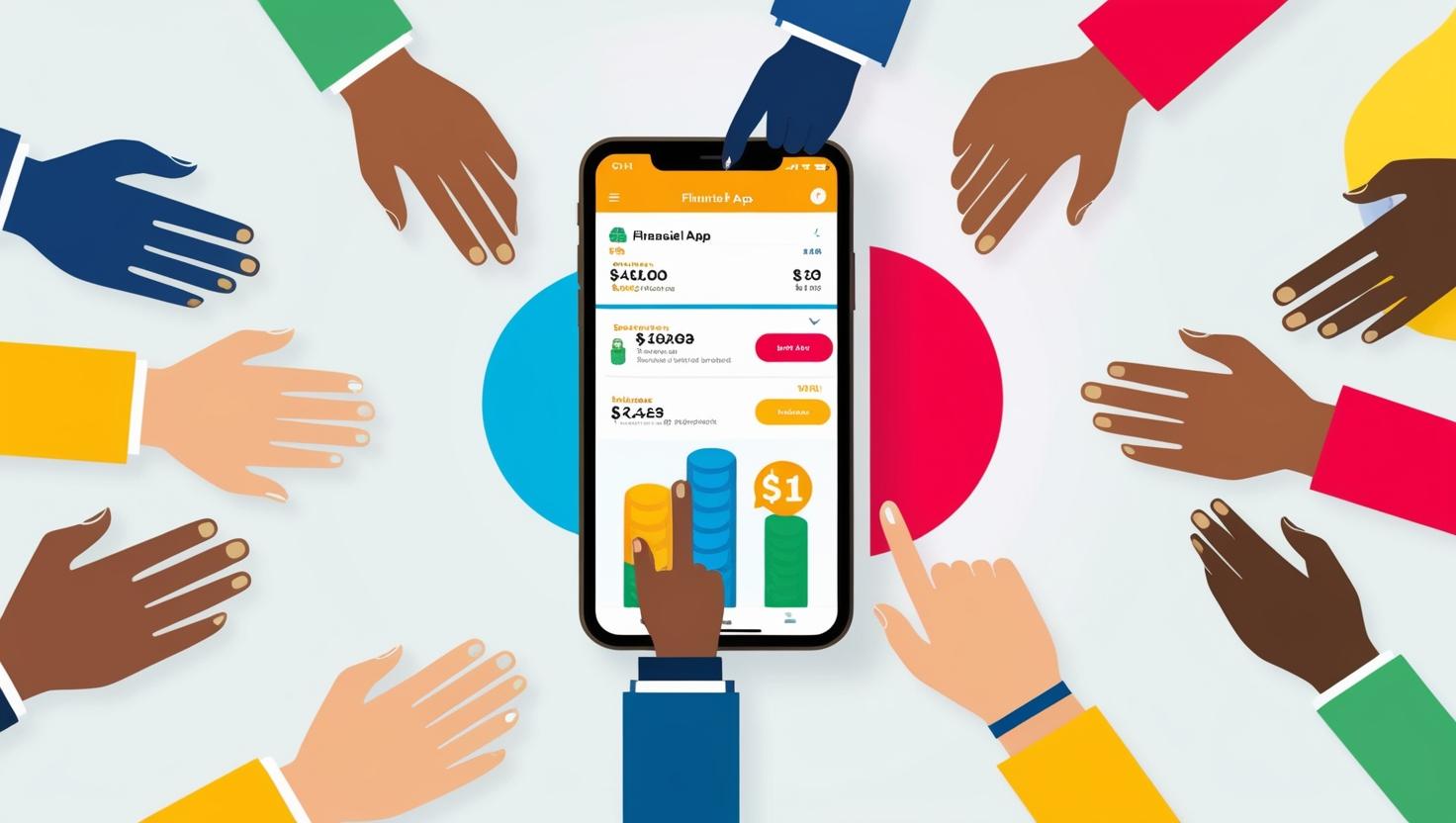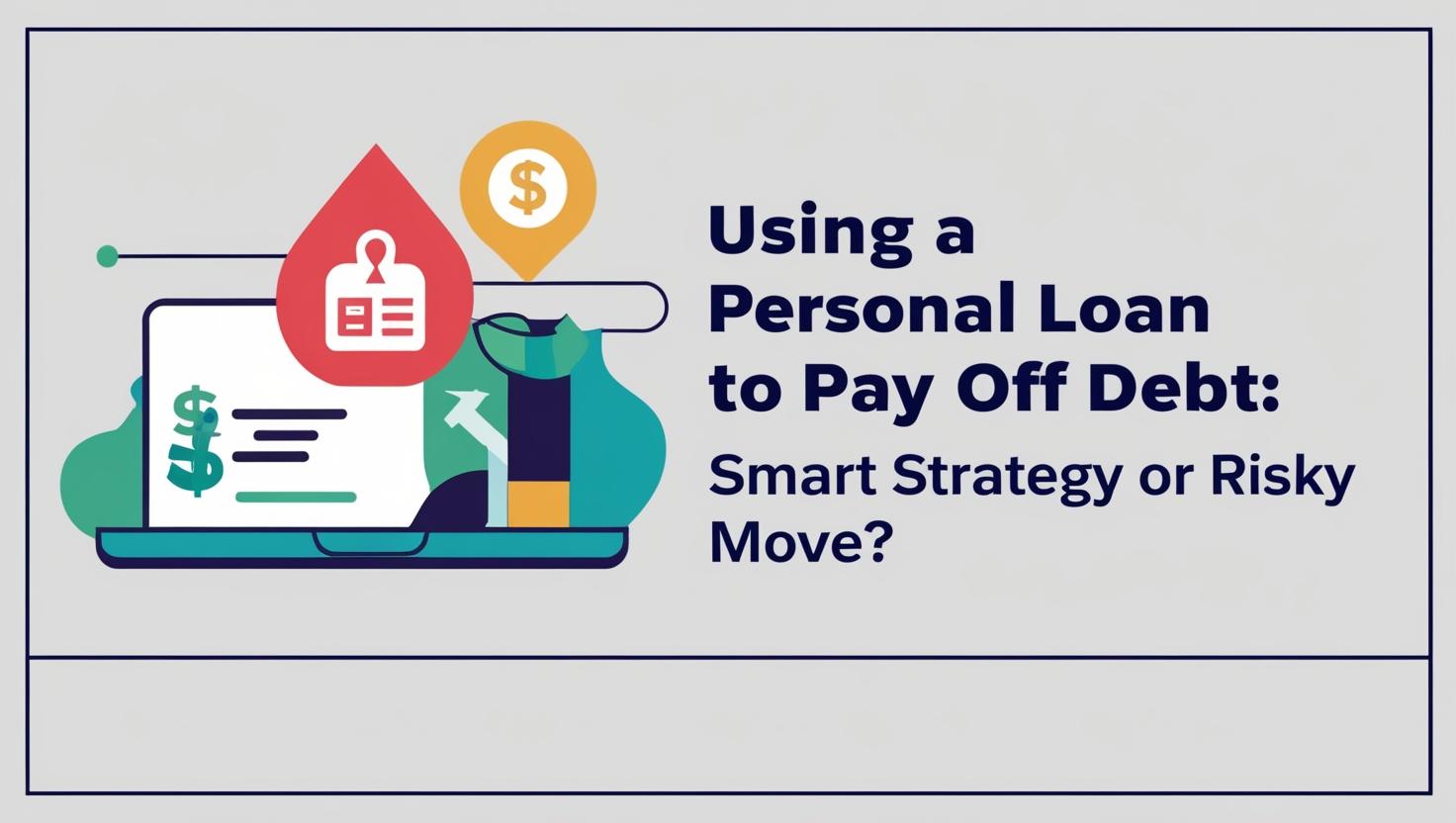If you’ve been looking for ways to control your personal finances, you’re not alone. Managing money can feel overwhelming, but with the right str5 Steps to Control Your Personal Finances: Your Guide to Financial Freedom
I grew up without learning about money in school. This made managing my finances really tough. Luckily, you can take control of your money and reach financial freedom.
In this guide, I’ll show you the five key steps to manage your money better. If you’re dealing with debt, want to save more, or just understand your finances, this guide is for you. It will help you take charge of your financial future.
Key Takeaways
- Only about half of U.S. states mandate personal financial literacy courses before high school graduation.
- 65% of Generation Z adults cited lack of sufficient savings as a barrier to investing.
- Employer retirement plan contribution matching is a valuable benefit that can boost your savings.
- Setting clear financial goals is crucial for staying focused and achieving long-term financial success.
- Budgeting and debt management strategies are essential tools for effective personal finance control.
Understanding Your Current Financial State
Starting to control your money begins with knowing where you stand financially. You need to look at your income, expenses, and overall money situation. This helps you find where you can do better and set smart money goals.
Assessing Your Income and Expenses
First, figure out how much money you make each month after taxes. This includes your main job, side hustles, or any other income. Then, track every expense, dividing them into must-haves (like rent and food) and nice-to-haves (like dining out). This cash flow analysis shows where your money goes and where you can save.
Identifying Financial Priorities
Knowing your income and expenses lets you focus on what’s important financially. You might want to save for emergencies, pay off debt, or plan for a big purchase. Setting your priorities helps you use your money wisely and work towards a stable future.
Creating a Financial Snapshot
Now, put all your financial info together in a detailed financial assessment. This should list your assets (like savings and investments) and debts (like loans and credit cards). Also, include your net worth. Keeping this expense tracking up to date helps you see how you’re doing and make smart money choices.
Understanding your current financial situation helps you make better choices. It sets you on the path to reaching your long-term money goals.
The Power of Goal Setting in Financial Planning
Starting your financial journey with clear goals is key. These goals help you stay focused and motivated. They guide your spending and saving habits, whether you’re saving for emergencies, paying off debt, or planning for retirement.
It’s important to set both short-term and long-term goals. Short-term goals, like saving for a house or paying off credit card debt, keep you motivated. They help you reach your bigger, long-term financial dreams by breaking them down into smaller steps.
A good financial goal is specific, measurable, achievable, relevant, and time-bound (SMART). This makes your goals clear and achievable. For instance, a SMART goal could be saving $5,000 for emergencies in a year or paying off $10,000 in credit card debt in 18 months.
It’s also important to regularly review and adjust your financial goals. As your life and priorities change, so should your goals. Keeping a flexible mindset ensures your financial plan stays aligned with your needs and goals.
Setting financial goals is more than just numbers. It’s about aligning your money with your values and dreams. When your goals reflect what’s important to you, you’ll be more driven to work towards them.
Goal setting in financial planning gives you direction and a clear path to financial freedom. By using this strategy, you can manage your finances effectively and look forward to a future filled with financial security and peace of mind.
How to Control Your Personal Finances Effectively
Keeping your finances in check is key to financial freedom. It means setting up good money habits, tracking your spending, and saving wisely. This approach helps you manage your money well.
Creating Sustainable Money Habits
Starting with a budget is essential for managing money. The Consumer Financial Protection Bureau says budgeting ensures you meet your needs and wants. It also helps save for the future. Regularly check and adjust your budget to align with your financial goals.
Implementing Tracking Systems
Using digital tools to track expenses can give you insights into your spending. Tools like CreditWise from Capital One and free credit reports from AnnualCreditReport.com help monitor your credit. This information aids in making smart debt management decisions.
Developing Financial Discipline
Financial discipline is vital for managing your money well. It means making thoughtful choices about spending and saving. Using methods like the snowball or debt avalanche can efficiently clear debt. Also, saving for emergencies and retirement ensures long-term financial stability.
By adopting good money habits, using tracking tools, and being financially disciplined, you can manage your finances effectively. This sets you up for a secure financial future.
| Financial Strategy | Description |
|---|---|
| Budgeting | Helps ensure having enough money for needs and wants while saving for future goals. |
| Retirement Accounts | 401(k), 403(b), traditional IRA, and Roth IRA offer tax advantages for savings. |
| Debt Reduction Strategies | The snowball method and debt avalanche method are efficient ways to pay off debt. |
| Credit Monitoring | Tools like CreditWise and free credit reports are crucial for maintaining credit health. |
“Budgeting helps ensure having enough money for needs and wants while saving for future goals.” – Consumer Financial Protection Bureau
Building a Realistic Budget Strategy
Creating a budget is key to managing your money. It’s not just a list of numbers; it’s a path to financial freedom. By knowing your income, controlling your spending, and matching your budget to your goals, you can make a budget that suits you.
For a budget to succeed, it must be realistic. Experts say to budget 20-25% less than you usually spend. This can cut your spending by 21.9% compared to not budgeting at all.
To make a realistic budget, first track your income and expenses. Then, set aside money for needs like rent and groceries. Also, save for goals like an emergency fund or retirement. The 50/30/20 rule is helpful, using 50% for needs, 30% for wants, and 20% for savings and debt.
Budgeting is an ongoing process. Adjust your budget as your finances change. Learn from spending too much and think about unexpected costs to make a better budget.
“A budget is a plan for every dollar you have.” – Unknown

With a realistic budget, you can manage your money, reach your financial goals, and live the life you want.
Mastering Debt Management Techniques
Effective debt management is key to personal financial control. Understanding different debts and using smart strategies can lead to financial freedom. Let’s dive into the main points of mastering debt management.
Understanding Different Types of Debt
There are many types of debt, like student loans, mortgages, and credit card balances. Each has its own interest rates and repayment terms. Knowing these details is the first step to a solid debt management plan.
Debt Reduction Strategies
- The Snowball Method: Start by paying off the smallest debt first, while making minimum payments on others. This method gives you a feeling of accomplishment as you clear each debt.
- The Avalanche Method: Focus on the debt with the highest interest rate first. This method saves you the most money over time by reducing interest paid.
- The Power Payment Method: Set a fixed amount for debt payments each month. This strategy helps pay off debts faster while keeping payments consistent.
Avoiding Common Debt Pitfalls
It’s important to watch out for debt pitfalls. Things like compound interest, relying too much on credit cards, and not saving for emergencies can lead to more debt. By knowing these risks and taking steps to avoid them, you can move towards financial freedom.
Using the help of Valex Federal Credit Union can change your debt management journey. They offer personalized plans, debt consolidation, and financial advice. These resources can help you take control of your finances and reach your goals.
Emergency Fund Essentials
Having a financial cushion for unexpected events is key to your financial health. An emergency fund is a special savings account for life’s surprises, like medical bills or job loss. Aim to save enough to cover three to six months of living costs.
Start with a small amount and add to it regularly. Even a little from your paycheck or tax refund can help. Setting up automatic transfers makes it easier to save.
Make sure to only use your emergency fund for real emergencies. Keep it in a safe, easy-to-access account. This way, you won’t be tempted to spend it on things you don’t need.
Investing in an emergency fund boosts your financial security. It not only acts as a financial cushion but also helps avoid high-interest debt. With a solid savings plan, you can handle life’s ups and downs and keep your long-term goals in sight.
“An emergency fund acts as a financial buffer, helping individuals navigate through unexpected financial setbacks without depleting long-term savings.”
Building a strong emergency fund takes time and effort, but it’s worth it. Begin with a small amount, automate your savings, and watch your financial security grow with each deposit.
Understanding Compound Interest and Its Impact
Compound interest can be a powerful tool in our financial journey. It can work for us, like in savings and investments, or against us, like with high-interest credit cards. Knowing how compound interest works is key to making smart choices about our money.
How Compound Interest Works for Savings
The magic of compound interest is its ability to grow our savings exponentially. When we save, the interest we earn then earns more interest. This snowball effect can lead to huge savings over time. For instance, investing $1,000 at a 5% annual rate could grow to about $1,276.28 in just 5 years.
The Cost of Compound Interest on Debt
Compound interest can be a blessing for savings but a curse for debt. High-interest credit cards can quickly turn debt into a nightmare. The more we owe, the more interest we pay, creating a cycle that’s hard to break. It’s vital to understand the impact of compound interest on debt to manage it effectively.
By understanding compound interest’s dual nature, we can make better financial decisions. Using it to our advantage for savings and investments while controlling its effects on debt can change our financial game.
| Scenario | Compound Interest Impact |
|---|---|
| Retirement account with $5,000 annual investment at 7% for 40 years | $1,763,048 |
| College savings with $3,000 initial deposit and $100 monthly at 6% for 18 years | $46,204 |
| Dividend reinvestment on $10,000 stock at 4% yield for 25 years | $26,658 |
| $2,000 annual retirement investment at 6% from age 20 to 30 | $183,967 |
| $2,000 annual retirement investment at 6% from age 30 to 40 | $122,708 |
The impact of compound interest on savings and debt is clear. By grasping its principles and using it wisely, we can make choices that support our financial goals and freedom.
Retirement Planning Fundamentals
Planning for retirement is key to financial security in the long run. As we get closer to retirement, knowing our options is crucial. This includes employer-sponsored 401(k) plans and Individual Retirement Accounts (IRAs).
401(k) plans are a common choice for saving for retirement. They offer a big plus: employer matching. This can greatly increase our savings, making retirement more comfortable.
IRAs also play a big role in retirement planning. They come with tax benefits that can help our savings grow. Knowing the differences between traditional and Roth IRAs is important for good planning.
When planning for retirement, remember a few important things:
- Maximize contributions to 401(k) plans, especially with employer matches
- Look into IRAs and their tax benefits
- Stay updated on retirement tax laws and rules
- Have a solid plan that uses different savings options
By planning ahead and using compound interest, we can ensure a secure future. It’s important to start early for a comfortable retirement.

| Retirement Savings Vehicles | Key Features | Tax Implications |
|---|---|---|
| 401(k) Plans | Employer-sponsored, potential for employer matching | Contributions are pre-tax, withdrawals are taxed as ordinary income |
| Traditional IRAs | Individual retirement accounts, tax-deferred growth | Contributions may be tax-deductible, withdrawals are taxed as ordinary income |
| Roth IRAs | Individual retirement accounts, tax-free growth and withdrawals | Contributions are made with after-tax dollars, withdrawals are tax-free in retirement |
“Effective retirement planning is not just about maximizing savings, but also understanding the nuances of different retirement accounts and their tax implications.” – Roger Klumb, CFP®
Smart Investment Strategies for Beginners
Investing is key to building wealth over time. It’s easier than ever to start. Knowing about different investments, managing risks, and spreading out your money are crucial for success.
Exploring Investment Vehicles
There are many investment options, from stocks and bonds to real estate and cryptocurrencies. It’s vital to learn about each one’s risks and benefits before investing.
Prioritizing Risk Management
Managing risk well is essential. Diversifying your portfolio helps protect against market changes. Using strategies like dollar-cost averaging can also help you handle market ups and downs.
Building a Diversified Portfolio
A diversified portfolio is key for managing risk and increasing returns. Spread your investments across different types, industries, and places. Digital platforms make it easy to manage a diverse portfolio.
| Investment Strategy | Description | Potential Risks |
|---|---|---|
| Buy-and-hold investing | Holding investments for the long term, typically 5 years or more | Market volatility, limited short-term gains |
| Active investing | Actively managing a portfolio to try to outperform the market | Higher fees, potential for underperformance |
| Dollar-cost averaging | Investing a fixed amount at regular intervals, regardless of market conditions | Potential for missed opportunities during market highs |
By learning about investments, managing risks, and diversifying, you can control your investment planning. Start small, do your homework, and stay focused on your goals.
Tax Optimization and Planning
Good tax planning can greatly improve your financial health. It means knowing how to invest wisely, using tax-advantaged accounts, and keeping up with tax laws. This way, you can save more and pay less in taxes.
Understanding tax-efficient investments is key. Look into ETFs, municipal bonds, and dividend reinvestment plans. These can help lower your tax bill and increase your returns.
Staying compliant with taxes is also important. It helps you meet your tax duties and use all the deductions and credits you can. Working with tax experts can guide you through tax laws and help with your tax decisions.
Tax planning isn’t just about investments. It’s about managing all your finances. This includes income shifting, maximizing deductions, and choosing the right business structure. A comprehensive approach to tax planning can reduce your tax burden and protect your wealth.
In summary, tax optimization and planning are vital for managing your finances. By staying informed, using tax-advantaged accounts, and working with financial and tax experts, you can manage your taxes well. This will help you achieve financial stability and security.

“Effective tax planning is crucial for preserving wealth, increasing disposable income, and ensuring long-term financial security.”
Digital Tools for Financial Management
In today’s digital world, many financial apps and tools help manage personal finances. They cover budgeting, expense tracking, investment management, and financial planning. These digital tools are key to reaching your financial goals.
Mint is a top app for managing money. It lets you track cash flow, create budgets, and set financial goals. Empower (formerly Personal Capital) gives a big picture of your finances by combining all your accounts in one place.
For those running businesses, LivePlan and My Figures are great tools. LivePlan helps with financial planning and cash flow. My Figures tracks income, expenses, and net worth, all in one spot.
| App | Key Features | Pricing |
|---|---|---|
| Mint | Budgeting, expense tracking, financial goal monitoring | Free |
| Empower (Personal Capital) | Comprehensive financial account aggregation, investment management | Free |
| LivePlan | Financial projections, cash flow management | $20 per month |
| My Figures | Income, expense, net worth tracking, account management | Free |
It’s crucial to know what these tools do and how they fit your financial goals. Using financial apps can help you manage your money better. This way, you can work towards financial freedom.
In conclusion, the digital world has many financial apps and tools. They make managing your money easier. From budgeting to investment management, these tools are essential for reaching your financial goals. By choosing the right tools for you, you can take control of your financial future.
Conclusion
Mastering your personal finances is a journey that never ends. It needs commitment, continuous learning, and action. By following the steps in this article, you can take control of your money and aim for financial freedom.
Effective financial management is a lifelong journey. As your life and goals change, so should your financial plans. See financial mastery as a never-ending learning experience. Always look for new ways to improve your financial health.
Your path to financial success is unique. By making these principles fit your needs, you can unlock your financial potential. Start this journey with a focus on learning, and watch your financial skills grow over time.
FAQ
What is the first step in controlling my personal finances?
The first step is to assess your current financial state. You need to know your post-tax earnings and expenses. Then, compare your expenses to your income. This helps set priorities and goals.
Why is setting clear financial goals important?
Clear financial goals are key to managing money well. They give you focus and motivation to save. Having both short-term and long-term goals keeps you motivated.
How can I effectively control my personal finances?
To control your finances, create good money habits. Use reliable tracking systems and stay disciplined. Regular budget reviews and consistent savings are important.
What is the role of a budget in personal finance?
A budget is a powerful tool for managing money. It tracks income and expenses and allocates funds. A good budget aligns with your financial goals.
How can I effectively manage my debt?
Managing debt is crucial for financial control. Understand your debt types, like student loans and credit cards. Use strategies like the snowball or avalanche method to pay off debt.
Why is an emergency fund important?
An emergency fund is vital for financial stability. It covers unexpected expenses like medical bills. Aim for three to six months’ worth of expenses in your fund.
How does compound interest work, and how can I use it to my advantage?
Compound interest can help or hurt your finances. In savings, it boosts wealth over time. But, it can also increase debt, especially with high-interest credit cards.
What are the key aspects of effective retirement planning?
Early retirement planning is crucial for financial security. Use 401(k) plans and IRAs for savings. Employer matching in 401(k) plans can greatly increase your savings.
How can I get started with investing?
Investing is key to building wealth and is accessible to all. Learn about different investments, manage risk, and diversify your portfolio. This is the path to successful investing.
How can I optimize my taxes and improve my financial planning?
Good tax planning is vital for your financial health. Understand tax-efficient investing and use tax-advantaged accounts. Stay updated on tax laws and deductions.
What are some digital tools that can help me manage my personal finances?
Many digital tools and apps can help with managing money. They assist with budgeting, tracking expenses, and investment management. Choose tools that fit your financial goals.







12 responses to “5 Steps to Control Your Personal Finances: Your Guide to Financial Freedom”
This article is such a practical guide! I especially appreciate the emphasis on tracking spending as a foundation for financial control. It’s amazing how small changes in daily habits can lead to long-term financial freedom. Thank you for breaking it down so clearly!
Thank you so much for your kind words! It’s true—those small changes can make a big impact over time. I’m glad you found the tips helpful. If you try any of the steps, I’d love to hear how they work for you!
I’ve always struggled with sticking to a budget, but the way you’ve outlined the 50/30/20 rule makes it feel so much more achievable. I’ll definitely be trying this approach moving forward!
I’m so glad the 50/30/20 rule resonated with you! It’s a simple yet powerful framework. Wishing you the best as you give it a try—feel free to share your progress or any questions you might have along the way!
Great read! One thing I’m curious about—do you have any tips for dealing with unexpected expenses while staying on track with a budget? That’s always been a challenge for me.
Great question! Unexpected expenses can definitely throw a wrench in the best-laid plans. One tip is to set up a small ‘rainy day fund’ within your budget—start with just 5% of your income. This way, you’ll have a buffer without disrupting your overall financial goals. Let me know if you’d like more ideas!
This guide is a gem for anyone starting their financial journey. I’m definitely sharing it with friends and family—it’s never too late to take control of your finances. Keep up the great work!
Thank you so much for sharing—it means a lot! I completely agree, it’s never too late to start. I hope your friends and family find the guide as helpful as you did. Let me know if there are other topics you’d like to see covered!
The part about creating a financial buffer really resonated with me. It’s such an important step that often gets overlooked. Would you recommend a specific percentage of income to set aside for an emergency fund?
I’m so glad that part stood out to you! As a general rule, I recommend starting with 10% of your income, if possible, and building up to 3-6 months of living expenses over time. It’s all about progress, not perfection. Let me know if you have any other questions!
Couldn’t agree more! This guide is a game-changer for anyone looking to take control of their finances. The actionable tips and strategies are invaluable. Thanks for sharing!
Practical and empowering! This 5-step guide to controlling personal finances is a must-read for anyone seeking financial freedom. The statistics highlighting the lack of financial literacy are eye-opening, but the actionable advice and tips provided are reassuring and helpful. Thanks for sharing a comprehensive roadmap to taking charge of one’s financial future!